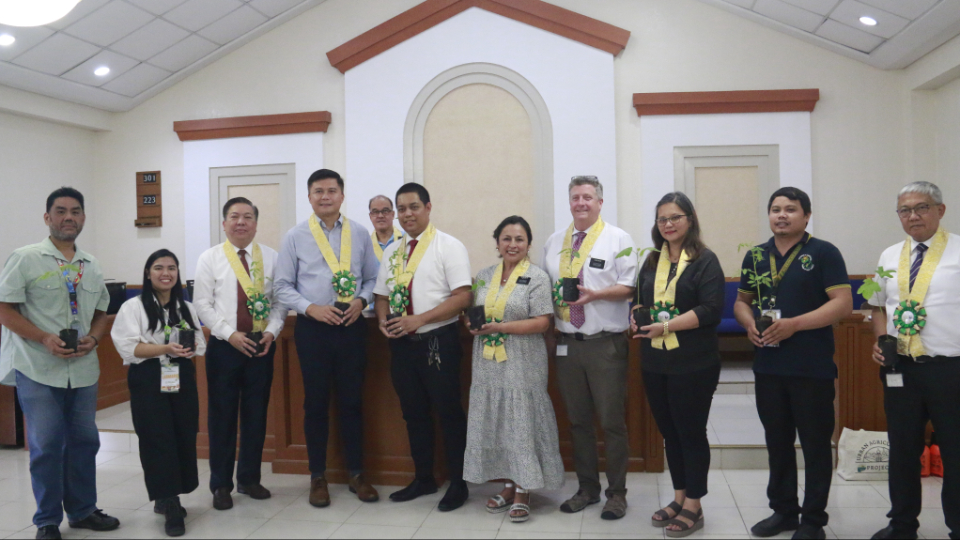 DOWNLOAD
DOWNLOADThe Church of Jesus Christ of Latter-day Saints teamed up with the Department of Agriculture (DA) and the Bureau of Plant Industry (BPI) to kickstart the Urban Agriculture program in San Juan City last July 13, 2023.
Present at the handover ceremony and Deed of Donation signing are DA-BPI Dir. Gerald Glenn Panganiban, of the High-Value Crops Development Program, Ms. Nemielynn Pangilinan, the OIC-Chief of the DA’s Partnerships and Accreditation Division and other local officials from San Juan City.
Also in attendance are area officers and missionaries from the Church, including Jairus Perez, the Country Director of Latter-Day Saints Charities; Abenir Pajaro, the Area Welfare and Self-Reliance Manager; Elder Brendan Hayne and his wife Sister Patricia Hayne, humanitarian and service missionaries; and Bp. Edvard Jimenez of the San Juan City Ward (diocese).
| Temple Square is always beautiful in the springtime. Gardeners work to prepare the ground for General Conference. © 2012 Intellectual Reserve, Inc. All rights reserved. | 1 / 2 |
Dir. Panganiban and OIC-Chief Pangilinan took the opportunity to express their heartfelt gratitude to the Church for its unwavering support and continued partnership in advancing the program's goals.
"We are here to help," Panganiban assures the beneficiaries. He said that they would make every effort to provide the necessary technical assistance, whether it's from the Agricultural Training Institute (ATI), the BPI for seeds or planting materials, or by connecting them with relevant partners.
On the other hand, Pangilinan highlighted that the Urban Agriculture Program was initiated by the DA in response to the food shortage experienced during the COVID-19 pandemic. She emphasized that the ATI, the training arm of the DA, is committed to providing accessible training, enabling beneficiaries to establish their gardens. Pangilinan further emphasized that the beneficiaries should see themselves as partners, not just recipients, and take responsibility for maintaining and sustaining the program.
In his message, Elder Hayne underscored the Church's commitment to humanitarian efforts by helping communities become stronger both spiritually and temporally.
"There are so many things in the world that we see every day that are worth running away from. When our church sees something good, we run toward it, and I believe this is a great opportunity to run toward something good,” Elder Hayne said.
Sister Hayne described the program as a miracle as it would help many beneficiaries improve their lives and the lives of their families.
"And what I see now, as a witness to you, is that this urban garden project will be a miracle worker among the individuals who receive these gardens because it will help them become self-sufficient," she said.
In his closing remarks, Pajaro emphasized that this program is for the beneficiaries' households, providing them with a starting point. He expressed hope that by becoming self-sufficient, the beneficiaries could eventually assist their neighbors and contribute to the betterment of their local community and country.
The Urban Agriculture program was established as a direct response to the urgent issue of food scarcity during the pandemic. In a collaborative effort, the Church and the DA partnered, sharing common goals. Through this program, they aim to promote and implement urban farming practices, offering a sustainable solution.
By empowering communities to cultivate their food within urban environments, the program ensures access to fresh produce and reduces reliance on external food sources. Beyond addressing immediate sustenance needs, the Urban Agriculture program fosters long-term resilience and food security, enabling individuals and communities to become self-sufficient in food production.